
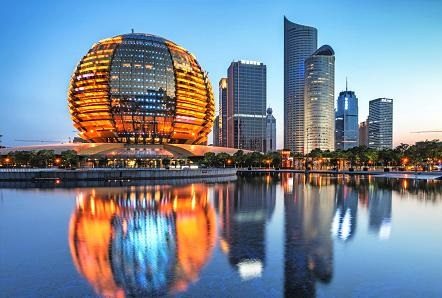
The one of World’s Top 15 Model Cities for Best Practices in Tourism
The United Nations World Tourism Organization (UNWTO) recently released its list of the World’s Top 15 Model Cities for Best Practices in Tourism. Hangzhou, China was included in the list for its innovative efforts in the protection and development of as well as continuous investment in the city’s historical and cultural resources.
In December 2016, UNWTO created an award recognizing the 15 cities worldwide considered by the organization as examples to emulate when it come to the adoption of best practices in tourism, among its 193 member countries. UNWTO plans to expand the best practices applied by the winners in other global destination cities. UNWTO selected 15 winners based on the results of a survey and a performance evaluation program conducted by a panel of judges at a special evaluation meeting held in September 2017.
Hangzhou applied for the Tourism’s Impact on Community and Culture category and was evaluated by the UNWTO. It was the first time Hangzhou competed for an award based on international tourism standards with the goal of taking its tourism sector to the next level and being benchmarked against international standards. The city has achieved a breakthrough with its presence at the evaluation.
Hangzhou was selected for inclusion in the list, thanks to its years of efforts in transforming the city into both an international tourism destination and an international city, as well as in enhancing the appeal of its local culture. The city highlighted its international marketing competitiveness by having itself benchmarked against the world’s most known tourism destinations and by leveraging its unique tourism resources. Chinese President Xi Jinping had made a point of promoting Hangzhou’s tourism resources at the G20 Summit held in Hangzhou in 2016, immediately raising the visibility of the city worldwide and cementing the city’s reputation as a go-to destination.
The honor will help Hangzhou accelerate its transformation into an international city as well as assist city managers in showcasing their achievements in terms of best practices for the tourism sector. In addition, the Hangzhou Tourism Commission was invited by UNWTO to give a presentation on best tourism practices at the UNWTO Annual Conference to be held in Kuala Lumpur in December 2017. Hangzhou was the only representative for model cities in the Asia Pacific region to attend the event.
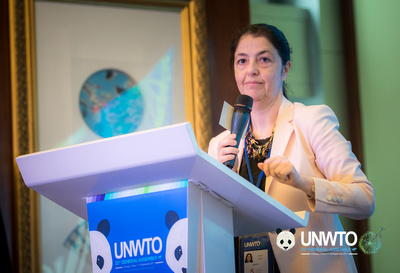
Carlos Vogeler not fired by UNWTO
On December 9, WorldTourismWire published an article entitled UNWTO Revenge: “Zurab Pololikashvil fired Carlos Vogeler.”
This headline was now changed to “Zurab Pololikashvil will not keep Executive Director Carlos Vogeler.” Why did WorldTourismWire change this headline?
There are many different sources of information this wire and eTN receives about UNWTO activities, including from an “anonymous chat group, from press statements, insiders and UNWTO members.” Carlos Vogeler has never been one of these sources. When eTN published the headline the word “fired” was not meant to be taken literally but it may have been inappropriate and confusing. eTN should have checked with Mr. Vogeler directly to include his “official version” of the situation.
Here are the facts: The contracts for all four executive directors in the World Tourism Organization are subject to expire December 31, 2017. According to eTN sources, three of the current executive directors will remain employed by the organization in one form or the other. The only current executive director not kept employed is Carlos Vogeler. Couldn’t this be interpreted as being “fired” in a way?
Strong and reliable sources told eTN, Mr. Vogeler asked for an extension for personal reasons, but this was denied by Zurab. eTN will honor Mr. Vogeler’s request to abstain from making reference to his personal circumstances and those of his family.
Mr. Vogeler wrote to eTN on December 21 saying that the article on December 9 was written without his previous knowledge or consent. This is true. eTN did not contact Mr. Vogeler prior to writing the article, nor would eTN need anyone’s permission to do so.
Mr. Vogeler’s sees his own situation different: “The article indicates that I have been fired from UNWTO which is a totally false affirmation. My contract, once I reached the retirement age of 62 as per UN rules, is due to end on 31st December 2017. This date coincides with the end of the term of the current Secretary-General Mr. Taleb Rifai, whose Senior Team I have been proud to serve. Consequently, this is the end of my contract and not a dismissal and all my pension rights have been totally respected by the Organisation. ”
Mr. Vogeler continued to say, he had been very honored and is proud of his professional career at UNWTO during all these years.
After again checking with sources, this publication stands behind its previous article and assertion about the likelihood of a “revenge”, even though Mr. Vogeler feels and clearly said in his letter this word was false and offensive to him. eTN today again checked a third time with sources close to the situation to come to this conclusion.
eTN will continue to monitor the situation and remains confident, that the previous evaluation on this issue was a correct assessment of the situation. eTN did not agree to remove the original article.
Nothing, of course, has been officially announced yet by the new Secretary General. When the new 107th session of the newly elected Executive Council met on September 16 in Chengdu. It was fully expected, as is the long-standing UNWTO tradition for any newly confirmed Secretary-General to present his deputy, and the rest of his executive team.
Curiously, this did not occur, because Pololikashivili wasn’t “ready”. Pololikashivili asked outgoing Secretary-General Taleb Rifai to push back the presentation and announce an extraordinary session of the Executive Council on the sidelines of the FITUR trade show in January 2018 in Madrid. Rifai announced this prominently at the 107th Executive Council meeting.
Some weeks later the minutes of this meeting was posted to the UNWTO website, yet there is not a single word about the incoming executive team presentation that was being rescheduled. Mysteriously it states the 108th Executive Council meeting will be hosted in Madrid in the first half of 2018.
“Mr. Vogeler will leave UNWTO on December 31 and we wish him the very best for his future. Mr. Vogeler has made a difference to UNWTO and can take credit for a lot of amazing success stories. He will be remembered”, says eTN Publisher Juergen Steinmetz.
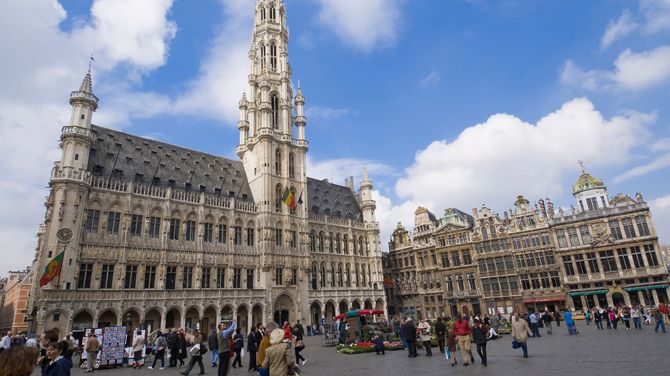
UNWTO and European Commission address the significance of the Tourism Satellite Accounts to measure the economic impact of the sector in Europe
The World Tourism Organization (UNWTO) and the Directorate-General for Internal Market, Industry, Entrepreneurship and SMEs (DG GROW) of the European Commission gathered national tourism policy makers and statisticians in Brussels to advance in the implementation of the measurement of the economic impact through Tourism Satellite Accounts.
As part of the events connected to the 2017 International Year of Sustainable Tourism for Development, and within the framework of the cooperation between UNWTO and DG GROW, the two institutions co-organized the Workshop “Measuring the economic impact of tourism in Europe: the Tourism Satellite Account (TSA)”, in collaboration with Eurostat. The event, hosted by DG GROW, was held in Brussels, Belgium on 29-30 November, 2017.
Bringing together over 100 policy makers (data users) and tourism statisticians and TSA compilers (data producers) from EU Member States and COSME [1] countries, the Workshop helped to bridge better understanding and entice collaboration amongst these key stakeholders.
“The economic importance of tourism in the European Union is increasingly recognized and better understood, partly thanks to the development of TSA in some EU Member States. It is important to create cohesion around this theme and we hope that the EU becomes an example in this regard to guide the rest of the regions,” said UNWTO Secretary-General Taleb Rifai.
A sense of optimism for tourism measurement and TSA in Europe emerged, alongside the realization that TSA is beyond a technical exercise, very much a strategic endeavor for the tourism sector.
The workshop was conducted with expertise from the European Commission (including Eurostat), UNWTO, UN Statistics Division (UNSD), Statistics Austria, the National Statistical Office of the Czech Republic, Destination Canada and Statistics Malaysia.
The topics debated ranged from technical inputs to governance issues and political leadership, all elements necessary for a successful TSA implementation. The participants exchanged ideas on the current status of the different national TSAs, their specificities and how to build the capacities and enabling environments for furthering their development. A key conclusion was that the challenges of TSA development in Europe have less to do with technical expertise and more with resource, communication, and political engagement.
The discussions have also emphasized the need to improve timeliness, while maintaining credibility, and fostering partnerships and dialogue between data producers and users. Reliable aggregated TSA estimates are key for strong tourism policy making which aims to support a sustainable and resilient tourism sector.
TSA is an instrument to measure and monitor the economic impact of tourism and links data on tourism to the broader economy. It is an accounting framework enabling the measurement and international comparison of the contribution of tourism to job creation, economic growth and the generation of wealth.The Conference held under the patronage of H.H. Sayyid Fahd bin Mahmoud al-Said, Deputy Prime Minister for the Council of Ministers of Oman, brought together Ministers of Tourism and Ministers of Culture as well as private sector stakeholders and experts with the objective of building and strengthening partnerships between the tourism and culture sectors and enhance their role in the UN’s 2030 Agenda for Sustainable Development.
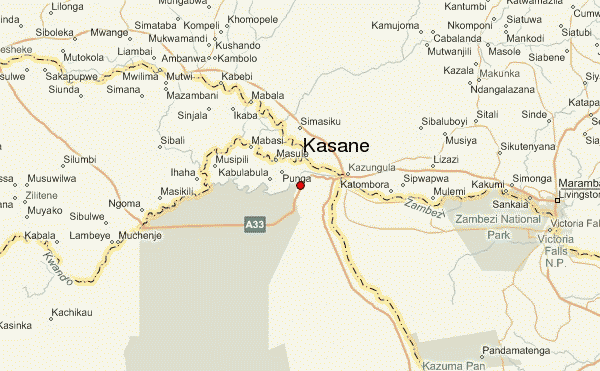
Botswana hosts the International Symposium and Annual Conference of the 10YFP Sustainable Tourism Programme (STP)
Kasane, capital of Chobe District in Botswana, hosted tourism stakeholders to exchange experiences and knowledge of innovative approaches to enhance tourism and conservation planning, financing and marketing. Under the theme “Empowering Tourism Destinations’ Sustainability through Innovation”, the 10YFP STP International Symposium and Annual Conference also discussed the role of the tourism sector in fighting climate change.
Inaugurated by Tshekedi Khama, the Minister of Environment, Natural Resources Conservation and Tourism of Botswana, the event began with a debate on how to market sustainability to trigger change among consumers. A second panel highlighted the relevance of integrating circular economy approaches into the tourism value chain to minimize waste, emissions and energy leakage at all stages of production. It also discussed the links between the tourism sector and the Paris Agreement, and the key role of destination managers therein.
The value of wildlife as a key asset of destinations was underlined in the third panel, dedicated to sharing experiences on wildlife tourism and its capacity to foster conservation given suitable financing frameworks. The last discussion focused on the application of new technologies – particularly geographic information systems and big data – to tourism planning, with the objective of promoting evidence-based decision making and increased synergies between tourism and conservation policy makers and practitioners.
‘The Tourism We Want’, a call to action to guide the network in the years to come
The second day of the event served to prepare the Kasane Call to Action for Sustainable Consumption and Production in Tourism under the title ‘The Tourism We Want’. The role of the 10YFP STP in the implementation of the Sustainable Development Goals (SDGs), particularly SDG 12, was debated through consultations among all participants aimed at identifying the priorities for the 10YFP Network in the coming five years. “The Tourism We Want” is the Network’s contribution to the legacy of the International Year of Sustainable Tourism for Development, which is being celebrated throughout 2017.
Partnerships and networking essential tenets for the implementation of the 2030 Agenda
Biodiversity and wildlife were present in most of the discussions, as well as the need to work in partnership with stakeholders of a diverse nature to advance shared goals and to multiply results. With 19 countries represented, the event was a good example of this approach: 40% of the over 100 attendees came from the private sector, 30% from NGOs, and 10% each from media, government and international organizations, including five different UN agencies and programmes.
The event was hosted by the Botswana Tourism Organization and co-organized by UNWTO and the governments of France, Morocco and the Republic of Korea, with support from the 10YFP Secretariat and UN Environment.
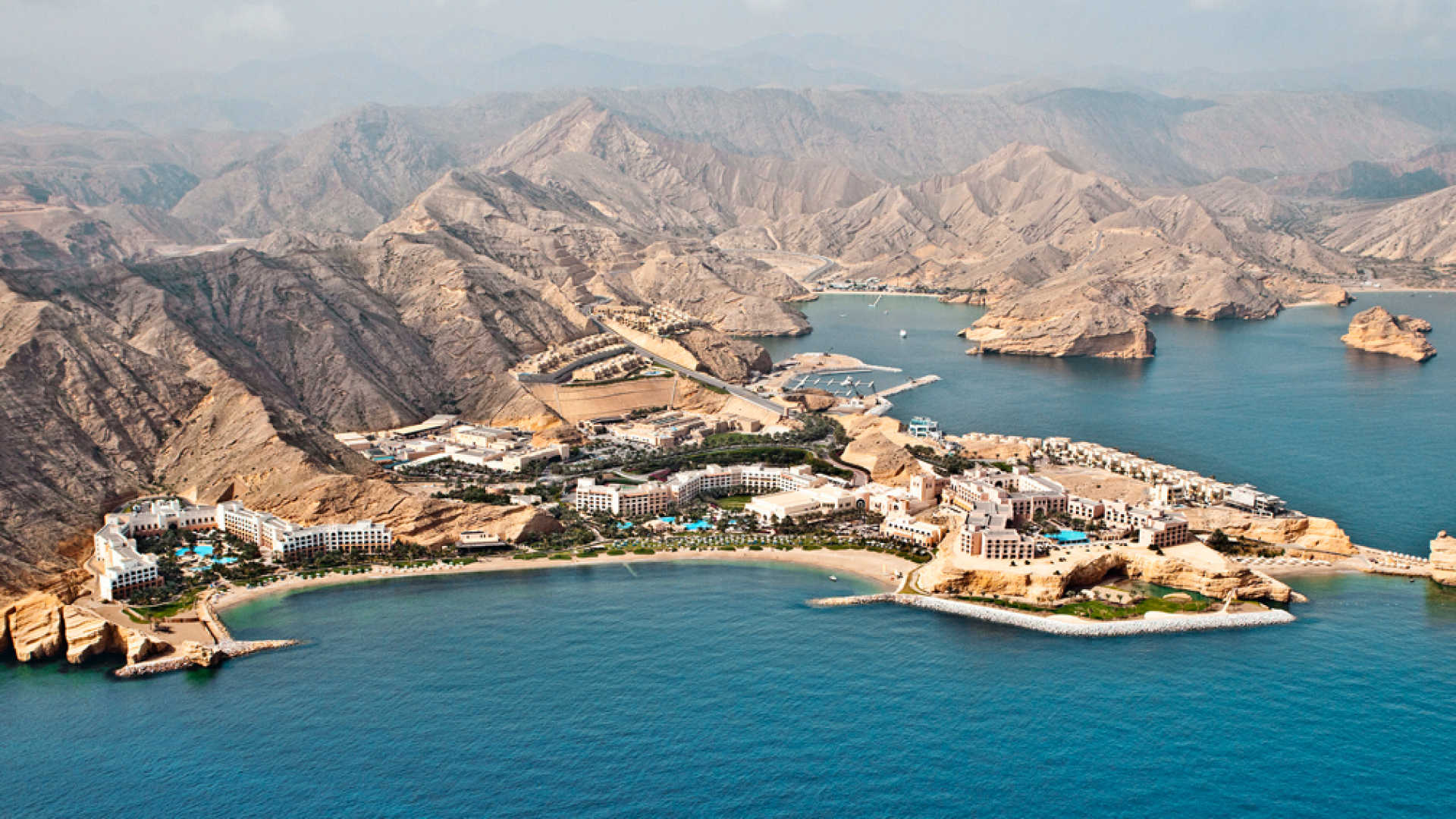
UNESCO and UNWTO Sign Muscat Declaration on Tourism and Culture: Fostering Sustainable Development
Culture, in all of its wondrous expressions, inspires more than 1.2 billion tourists to pack a bag and cross international borders each year. It is an important means to promote inter-cultural dialogue, create employment opportunities, curb rural migration, and nurture a sense of pride among host communities. Yet unmanaged, it can also harm the very heritage cultural tourism relies on.
Recognizing that a sustainable, approach with buy-in from all partners, is crucial to cultural tourism, peacebuilding and heritage protection, on 12 December, the Muscat Declaration on Tourism and Culture: Fostering Sustainable Development was signed by representatives of UNESCO, the World Tourism Organization (UNWTO), delegations, private sector, local communities and NGOs.
This concluded the two-day World Conference on Tourism and Culture co-organized by UNESCO and the UNWTO and hosted by the Sultanate of Oman. Through the Declaration, some 30 Ministers and Vice Ministers of Tourism and Culture, and 800 participants from 70 countries, reaffirmed their commitment to strengthen the synergies between tourism and culture, and to advance the contribution of cultural tourism to the 2030 Agenda on Sustainable Development.
“Cultural tourism is growing, in popularity, in importance and in diversity embracing innovation and change. Yet, with growth comes increased responsibility, responsibility to protect our cultural and natural assets, the very foundation of our societies and our civilizations” said UNWTO Secretary-General, Taleb Rifai.
Francesco Bandarin, UNESCO Assistant Director-General for Culture, emphasized that we need to create a positive dynamic between culture and tourism “that promotes sustainability while benefiting local communities. This dynamic must contribute to safe and sustainable cities, decent work, reduced inequalities, the environment, promoting gender equality and peaceful and inclusive societies.”
Ministers from Cambodia, Libya, Somalia, Iraq and Vietnam discussed the role of cultural tourism as a factor of peace and prosperity, and shared views on the capacity of tourism to support the recovery of their countries.
The Declaration calls for cultural tourism policies that not only empower local communities, but also employ new, innovative tourism models that advance sustainable development, host-guest interaction, and cultural exchange. It promotes integrating sustainable cultural tourism and the protection of heritage in national, regional and international security frameworks. The Declaration also references UNESCO’s 1972 Convention Concerning the Protection of the World Cultural and Natural Heritage and 2005 Convention for the Protection and Promotion of the Diversity of Cultural Expressions in relation to these objectives.
Ahmed Bin Nasser Al Mahrizi, Minister of Tourism of the Sultanate of Oman, highlighted the importance of exchanging experiences and ideas to achieving sustainable tourism development. Participants shared best practices on issues such as community engagement, visitors’ management, and use of resources from tourism in conservation in such diverse locations as the Ngorongoro Conservation Area in Tanzania, the Ras Al Khaimah in the United Arab Emirates or the Palace of Versailles in France. Entrepreneurship, SME’s and the protection of traditional knowledge were viewed as compatible with developing sustainable tourism, with examples from India in the hotel sector and in other regions developing local food initiatives. Other examples included World Bank projects revitalizing cultural heritage for sustainable tourism development, and Seabourn Cruise Line’s partnership with UNESCO to raise awareness of World Heritage with their guests.
Following the first UNWTO/UNESCO World Conference on Tourism and Culture in Cambodia in 2015, this second Conference was part of the official events of the 2017 International Year of Sustainable Tourism, so declared by the United Nations. Istanbul (Turkey) and Kyoto (Japan) will host the 2018 and 2019, editions respectively.
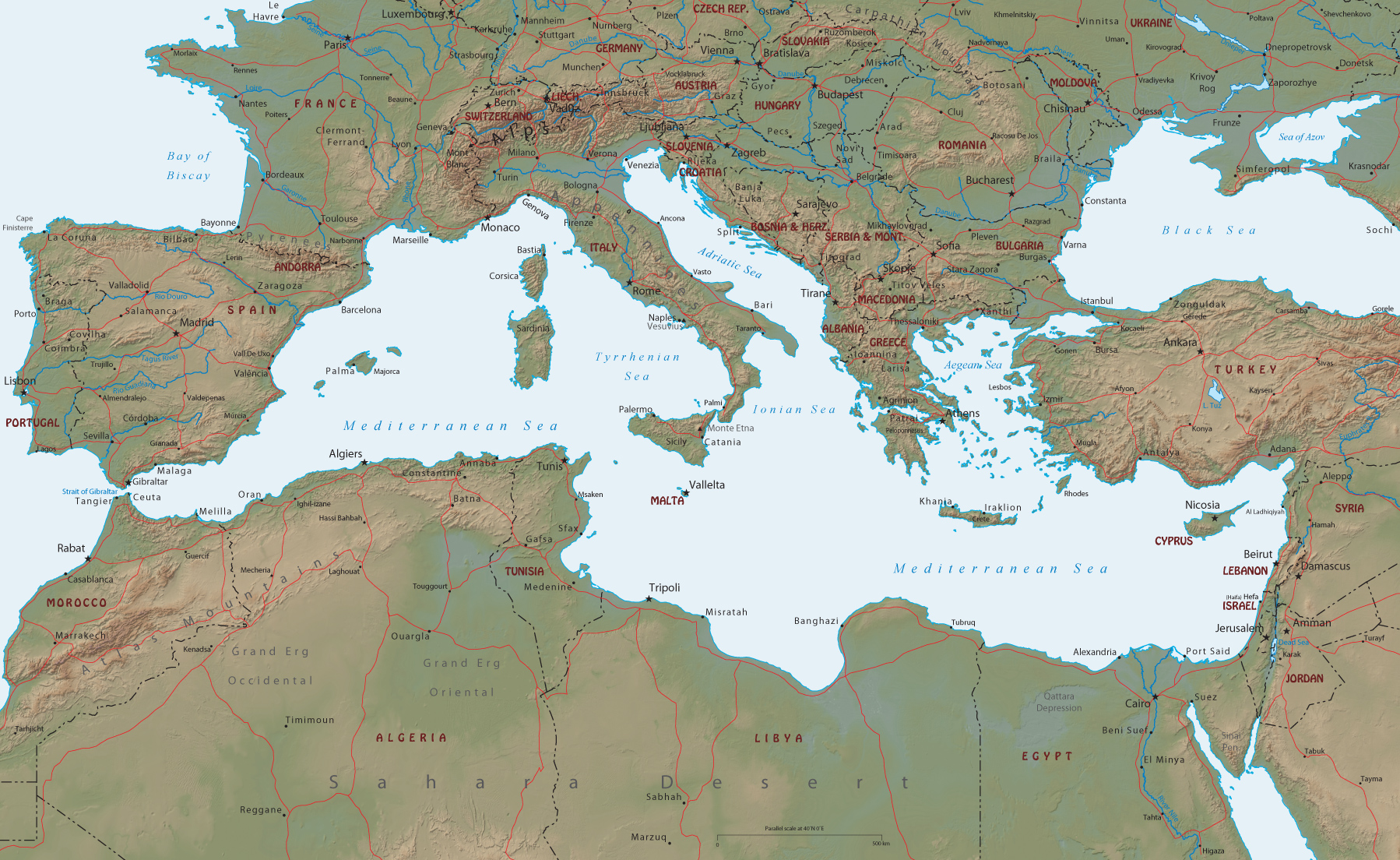
UNWTO: Southern and Mediterranean Europe, MENA drive tourism growth in October 2017
Destinations around the world welcomed 1.1 billion international tourists between January and October 2017, according to the latest UNWTO World Tourism Barometer. This represents a 7% increase on the same period of last year, or 70 million more international arrivals. Strong demand for international tourism across world regions reflects the global economic upswing.
The strong tourism demand of the earlier months of 2017, including the Northern Hemisphere summer peak season, was maintained through October. Destinations worldwide received a total of 1,127 million (+7%) international tourist arrivals (overnight visitors) in the first ten months of the year, 70 million more than in the same period of 2016. Results were driven by sustained growth in many destinations and a firm recovery in those that experienced declines last year.
In particular, destinations in Southern and Mediterranean Europe, North Africa and the Middle East showed extraordinary strength. Growth in international arrivals exceeded 7% in all destinations of Southern and Mediterranean Europe, with a rapid recovery seen in Turkey and double-digit increases for most of the region’s other destinations. In North Africa and the Middle East, Egypt, Tunisia and Palestine rebounded strongly from previous years’ declines, while Morocco, Bahrain, Jordan, Lebanon, Oman and the United Arab Emirate of Dubai all continued to report sustained growth.
“These robust results, the best we have seen in many years, reflect the sustained demand for travel around the world, in line with the improved global economy and the rebound of destinations that suffered declines in previous years,” said UNWTO Secretary-General Taleb Rifai at the 2nd UNWTO/UNESCO Conference on Tourism and Culture, held on 11-12 December in Oman.
“As we gather in Oman for this important event, we must acknowledge the strong resilience of tourism reflected in the continuous growth in many destinations of the Middle East, and the rapid recovery in others. Tourism brings benefits to local communities and visitors through the promotion of peace and mutual understanding and, as this event highlights, respect for cultural heritage and values.” Mr. Rifai added.
Regional Results
Europe (+8%) led growth in international arrivals in the first ten months of 2017, driven by remarkable results in Southern and Mediterranean Europe (+13%). Western Europe (+7%) rebounded from weaker results last year, while Northern Europe (+6%) enjoyed ongoing solid growth. Arrivals in Central and Eastern Europe grew 4% between January and October 2017.
Africa (+8%) was the second fastest-growing region over this period, thanks to a strong recovery in North Africa (+13%) and the sound results of Sub-Saharan Africa (+5%).
In Asia and the Pacific (+5%) results were led by South Asia (+10%), with South-East Asia (+8%) and Oceania (+7%) also enjoying a robust increase in arrivals. North East Asia (+3%) recorded more mixed results, with some destinations reporting double-digit increases, and others, declines.
South America (+7%) continues to lead growth in the Americas, where arrivals overall increased by 3%. Central America and the Caribbean both grew 4%, with the latter showing clear signs of recovery in October in the aftermath of hurricanes Irma and Maria. In North America (+2%), robust results in Mexico and Canada contrast with a decrease in the United States, the region’s largest destination.
Results in the Middle East (+5%) through October were mixed, with some destinations rebounding strongly and others continuing to report sustained growth, but the regional average was weighed down partly by a few that showed declines.
Strong recovery of outbound tourism demand from Brazil and Russia
As for outbound markets, 2017 is marked by a strong pickup of expenditure on international tourism in Brazil (+33%) and the Russian Federation (+27%) after some years of declines.
Most of the other source markets continued to grow at a sustained pace. Among the top 10 source markets, China (+19%), the Republic of Korea (+11%), the United States and Canada (both +9%), and Italy (+7%) reported the fastest growth in international tourism expenditure. Expenditure from Germany, the United Kingdom, Australia, Hong Kong (China) and France grew between 2% and 5%.
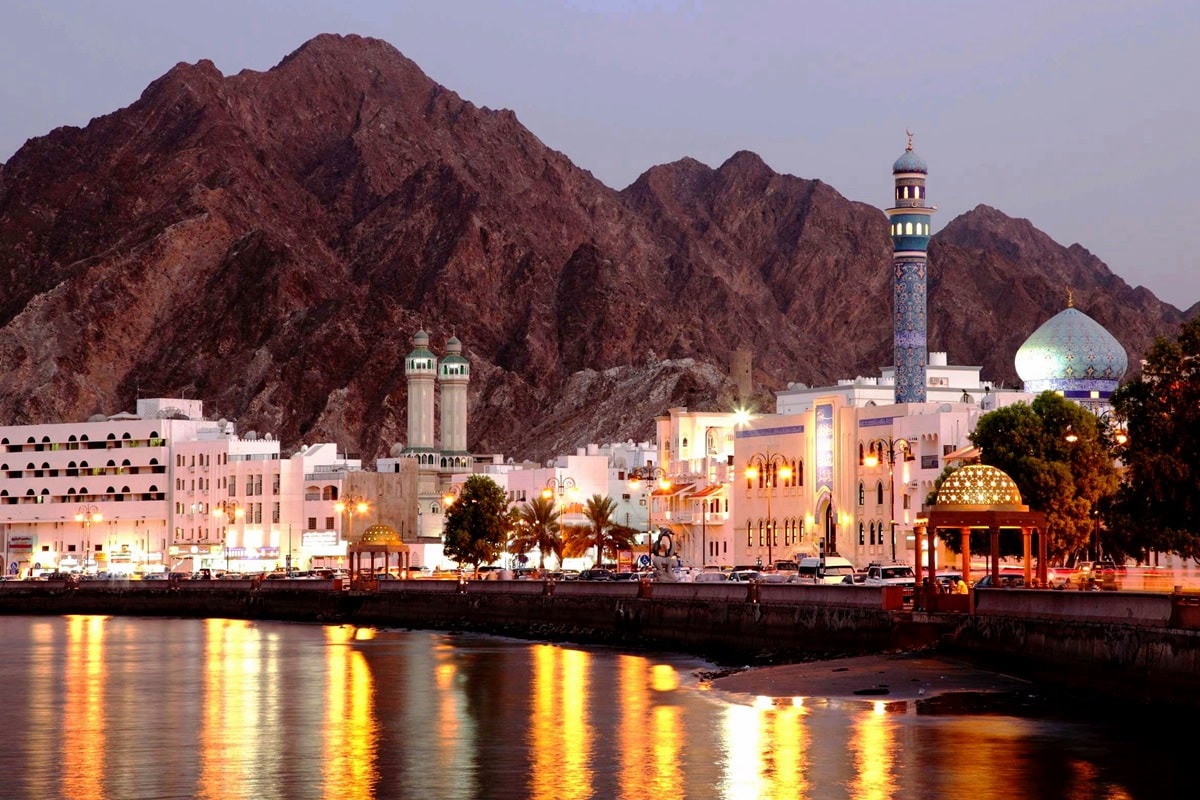
Tourism and Culture to work together for the Sustainable Development Goals
Over 800 participants from 70 countries gathered in Muscat, capital city of the Sultanate of Oman on 11-12 December 2017 for the Conference, an official event in the calendar of the International Year for Sustainable Tourism for Development 2017.
The Conference held under the patronage of H.H. Sayyid Fahd bin Mahmoud al-Said, Deputy Prime Minister for the Council of Ministers of Oman, brought together Ministers of Tourism and Ministers of Culture as well as private sector stakeholders and experts with the objective of building and strengthening partnerships between the tourism and culture sectors and enhance their role in the UN’s 2030 Agenda for Sustainable Development.
The Muscat reaffirms the commitment to:
1. Strengthen the synergies between tourism and culture and advance the contribution of cultural tourism to the 2030 Agenda on Sustainable Development and the 17 SDGs;
2. Enhance the role of tourism and culture in peace building and heritage protection, especially in conflict affected areas;
3. Promote responsible and sustainable tourism management of cultural heritage;
4. Encourage a creative and innovative approach for sustainable urban development through cultural tourism; and
5. Explore the inter-linkages between culture and nature in sustainable tourism.
“The Sultanate of Oman is richly endowed with many diversified natural resources spread in all governorates of the country, in addition to a rich historic and cultural heritage, which dates back to many centuries in the history of humanity. Our main long term objective is to achieve economic diversification, together with upgrading the direct and indirect contribution of the sector in GDP, provision of direct and indirect employment opportunities for the national labour force, enhancing government revenues, supporting the balance of payments and achieve the highest level of regional development” said H.E. Ahmed Nasser Al Mahrizi, Minister of Tourism of Oman, opening the meeting.
“Two years ago we met in Cambodia for the First UNWTO/UNESCO Tourism and Culture Conference. Today am very pleased that we reassume this dialogue here in Muscat. A dialogue that should happen every day around the globe. Yet that often finds itself limited by us living in separate silos”, said UNWTO Secretary-General Taleb Rifai.
“With over 1.2 billion people now crossing international borders each year, tourism represents a golden opportunity to break down barriers of ignorance and prejudice. It plays an important role as a vehicle for inter-cultural dialogue and, ultimately, peace.”, said Francesco Bandarin, UNESCO Assistant Director-General on Culture, in his opening speech, on behalf of UNESCO Director-General, Audrey Azoulay.
“UNESCO and UNWTO are also united in our commitment to tackling the challenges of poverty and development through sustainable tourism.” he added.
On the occasion of the Conference, H.E. Ms. Eliza Jean Reid, First Lady of Iceland, was officially appointed the UNWTO Secretary-General as Special Ambassador for Tourism and the Sustainable Development Goals (SDGs). UNWTO launched the Special Ambassadors for Tourism and the SDGs Programme as a legacy of the International Year of Sustainable Tourism for Development 2017.
The Conference initiated with a Ministerial Dialogue moderated by John Defterios from CNN International, focusing on policy and governance frameworks between tourism and culture to support responsible, culturally-aware, and inclusive tourism that contribute to the socio-economic development of host communities, promote cross-cultural exchanges, and generate resources for the safeguarding of tangible and intangible heritage.
A Special Ministerial Dialogue addressed the role of cultural tourism as a factor of peace and prosperity. Ministers from Cambodia, Libya, Somalia, Iraq and Vietnam shared views on the capacity of tourism to support the recovery of their countries.
The technical sessions focused on tourism development and protection of cultural heritage and promoting responsible and sustainable tourism management at World Heritage sites, culture and tourism in urban development and creativity and the relevance of cultural landscapes in tourism and the integration of natural and cultural heritage philosophies and procedures for sustainable tourism development.
Istanbul (Turkey) and Kyoto (Japan) will host the 2018 and 2019 editions of the UNWTO / UNESCO World Conference on Tourism and Culture.
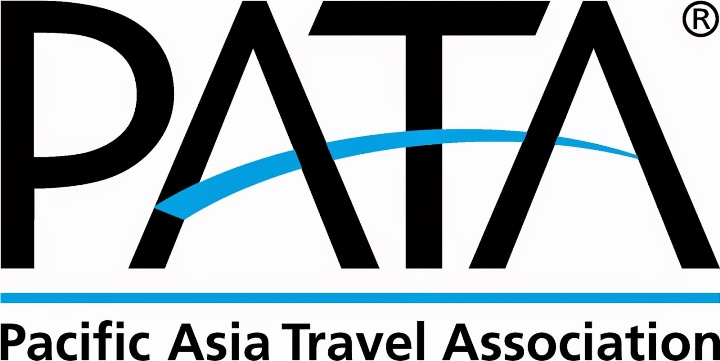
PATA will highlight the issue of gender equality in 2018
BANGKOK, December 12, 2017 – In line with the United Nations (UN) Sustainable Development Goals (SDGs), the Pacific Asia Travel Association (PATA) will advocate for increased gender equality in the travel and tourism industry in 2018. As noted in the SDGs, gender equality is the primary focus of Sustainable Development Goal 5 – Achieve gender equality and empower all women and girls.
The announcement was first made by PATA Chairperson Sarah Mathews during the PATA Aligned Advocacy Dinner on Monday, November 6 in London, where guests included a group of approximately 150 leading individuals representing the major players in travel and tourism.
According to the UN, while the world has achieved progress towards gender equality and women’s empowerment under the Millennium Development Goals (including equal access to primary education between girls and boys), women and girls continue to suffer discrimination and violence in every part of the world. Gender equality is not only a fundamental human right, but a necessary foundation for a peaceful, prosperous and sustainable world.
“Travel and tourism provides the perfect opportunity for people from various backgrounds to share their stories with each other in the hope that we can better understand each other as humans, regardless of our gender, race, faith or beliefs,” said PATA CEO Dr. Mario Hardy. “The Association holds the fundamental belief that all travel and tourism stakeholders have an equal voice that should be heard. It is through a shared voice that change can be attained. It is our policy to ensure there is equal opportunity without discrimination or harassment on the basis of race, colour, religion, sex, sexual orientation, gender identity or expression, age, disability, marital status, citizenship, genetic information, or any other characteristic protected by law.”
The Global Report on Women in Tourism 2010 published by the World Tourism Organization (UNWTO) and UN Women found that:
1. Women make up a large proportion of the formal tourism workforce
2. Women are well represented in service and clerical level jobs but poorly represented at professional levels
3. Women in tourism are typically earning 10% to 15% less than their male counterparts
4. The tourism sector has almost twice as many women employers as other sectors
5. One in five tourism ministers worldwide are women
6. Women make up a much higher proportion of own-account workers in tourism than in other sectors
7. A large amount of unpaid work is being carried out by women in family tourism businesses
“In line with the SDGs, PATA will continue to drive forward its mission of empowering its members to leave a positive impact on countries, destinations, local communities and the surrounding environment. Gender equality requires a strong commitment from both the public and private sectors to work together in reinforcing policies, adapting laws, and investing in education, vocational training and skills development to provide women in the industry with opportunities to make empowered choices for their future. Equality is and will continue to be a cornerstone of the Association’s mission in acting as a catalyst for the responsible development of travel and tourism to, from and within the Asia Pacific region,” he added.
During 2018, PATA will further its commitment to the issue of gender equality and examine opportunities to highlight this issue through its research and publications, events and training programmes. The Association will also look to its partners and members for advice and suggestions.
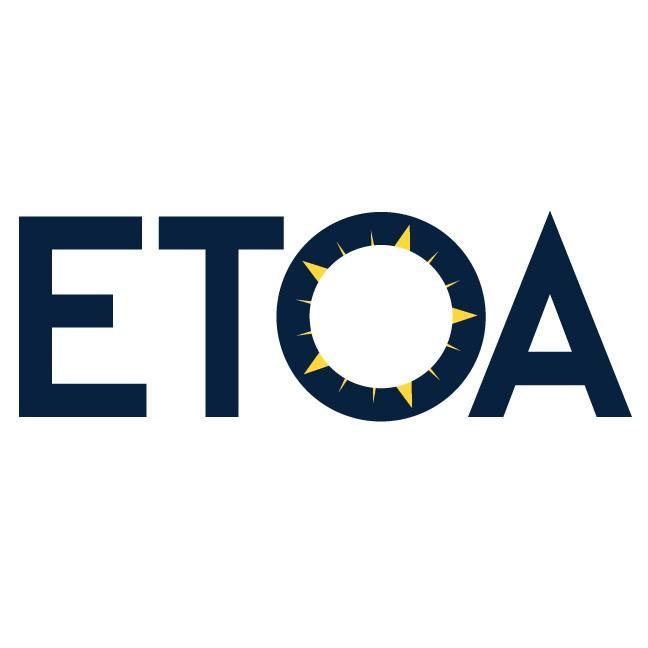
Europe partners with China Outbound Travel & Tourism Market
The European Commission-funded Partnerships in European Tourism project will arrive in Beijing at the China Outbound Travel & Tourism Market in April 2018 – marking the first of a series of B2B tourism events taking place in China as part of the 2018 EU-China Tourism Year.
The 2018 EU-China Tourism Year was announced in 2016 by the President of the European Commission, Jean-Claude Junker and the Chinese Prime Minister, Li Keqiang. Partnerships in European Tourism is an initiative as part of this this year aimed at supporting EU tourism businesses and operators wishing to expand their businesses into China. This is achieved through tutoring activities, facilitating new collaborations and partnerships around trans-European tourist products and the organisation of B2B matchmaking and other promotional events alongside international fairs.
Now in its 14th year, COTTM is the longest running and most well respected platform for the outbound tourism market. It is the only business to business event that focusses on the expanding outbound tourism market. In 2017 COTTM attracted over 4300 Chinese trade buyers and more than 450 exhibitors from 70 countries and is the only exhibition that is 100% business to business and 100% outbound.
COTTM was selected as the first venue to host a China-based event in the 2018 programme – a B2B matchmaking between European businesses and Chinese operators will take place, as well as a thematic conference on EU-China cooperation on tourism with a focus on the particular draw of family travel to Europe.
The European delegation is working closely with the China Tourism Academy (CTA) to deliver a conference programme within the COTTM programme to demonstrate the very best of Europe’s offer to the outbound Chinese market.
Dai Bing, President of China Tourism Academy – said, “COTTM aims to promote the development of China outbound tourism and the partnerships between China and overseas destinations since it was launched, and builds a bridge for the communication between China and the global tourism industry. China Tourism Academy (CTA) is willing to support the cooperation between COTTM and the European Travel Commission (ETC) and European Tourism Association (ETOA).”
“We are delighted to be hosting a delegation from Europe at the 2018 event in collaboration with the ETOA – the European tourism association. This is an important development for the show, and we know from visitor feedback that Europe is a very important destination for the Chinese outbound tourism market. We look forward to a continued partnership and to see the business opportunities develop at the show.” Said Matt Thompson, Project Director, Tarsus Group Ltd.
Tom Jenkins, CEO of ETOA – European tourism association, head of the consortium delivering the Partnerships in European Tourism programme – said: “Following the official opening of the 2018 EU-China Tourism Year in Venice in January, it makes complete sense that we bring the first in-market Partnerships in European Tourism event to the Chinese capital. Bringing a matchmaking, conference and exhibition at the only dedicated B2B outbound event in China will ensure the best business development opportunities for all involved.“
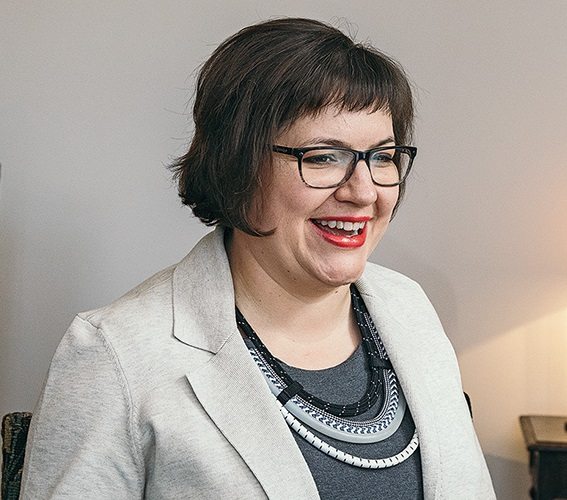
UNWTO appoints First Lady of Iceland as Special Ambassador for Tourism and Sustainable Development Goals
H.E. Ms. Eliza Jean Reid, First Lady of Iceland has been nominated as Special Ambassador for Tourism and the Sustainable Development Goals (SDGs). The appointment took place at the second UNWTO/UNESCO World Conference on Tourism and Culture, an official event of the International Year of Sustainable Tourism for Development 2017, being held in Muscat, Sultanate of Oman on 11 and 12 December.
UNWTO launched the Special Ambassadors for Tourism and the SDGs program as a legacy of the International Year of Sustainable Tourism for Development 2017. The program aims at advocating for the contribution of sustainable tourism´s to the 17 SDGs and encouraging the full integration of tourism and the SDGs in national, regional and global agendas.
In her intervention at the Conference H.E. Ms. Eliza Jean Reid underlined the relevance of sustainable tourism as a means to build peace and social cohesion “A strong, positive correlation exists between tourism and peace. The very existence of tourism depends on peace and security. Tourism represents a vital force for peace and a factor of friendship and understanding among the peoples of the world, because of the direct contacts it engenders between people of different cultures and lifestyles.” she said.
“With my strong belief in the power of sustainable tourism to help reduce inequality and increase tolerance, it is a tremendous honour for me to have been asked to be a Special Ambassador for Tourism and the Sustainable Development Goals.” she added.
“By becoming a Special Ambassador on Tourism and SDGs the First Lady who personify Iceland’s wholehearted commitment to sustainable tourism development will surely provide an invaluable support to our efforts to make tourism more sustainable and increase our contribution to all 17 SDGs” said UNWTO Secretary-General Taleb Rifai.
